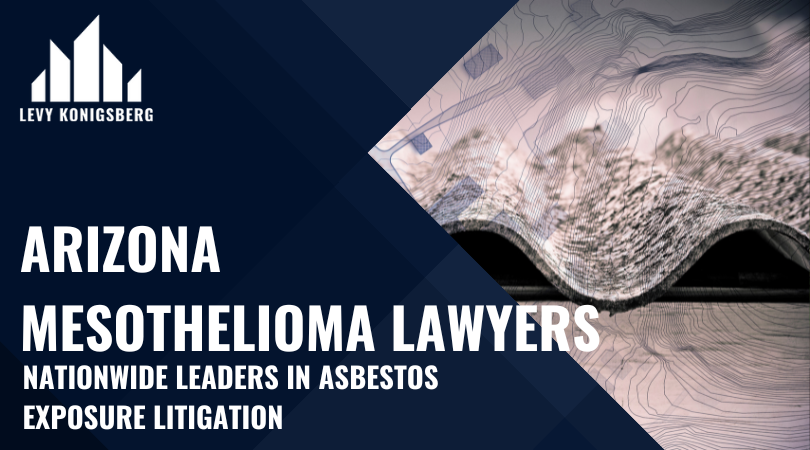Arizona is a Southwestern state that is home to many naturally occurring asbestos deposits. The state’s legacy of asbestos mining and its negative effects on human health traced to the late 19th Century. Additionally, several factories and buildings had a strong association with asbestos use prior to the warning of its dangers. As a result, Arizona is ranked 21st in the nation for asbestosis and mesothelioma deaths.

Major Sources of Asbestos Contamination in Arizona:
Arizona’s asbestos mining industry was the main source of the state’s troubles with the carcinogenic mineral, but not the only one. Many industries, especially those involved in construction and energy production, used the fibrous minerals in their facilities or made asbestos-containing materials (ACMs). Asbestos was used as insulation and to protect property, equipment and workers from the effects of fire, intense heat or electrical discharges.
Even unrelated mineral mining and processing businesses were impact by asbestos contamination. The Solomon’s Mines packing plant in Phoenix processed vermiculite, a mineral extracted from mines in Libby, Montana by W.R. Grace. In its normal, pure state, vermiculite is not dangerous to humans, but the deposits in Montana were contaminated by large amounts of asbestos fibres.
Another major vermiculite processing plant which handed ore mined by W.R. Grace in Libby was the Ari-Zonolite Company site in Glendale. According to a report prepared by the Arizona Department of Health Services (ADHS), this job site was leased by Ari-Zonolite from 1951 to 1964. It estimated that over 200,000 tons of vermiculite ore shipped to the Ari-Zonolite plant for processing. This ore found to contain estimated 21%-26% asbestos, but W.R. Grace considered this is a natural and harmless side effect.
Arizona Asbestos Laws:
Arizona has laws and regulations in place to help protect the public from the dangers of asbestos. The Arizona Department of Environmental Quality has mandated its own regulations, but the state also follows the regulations under Asbestos National Emission Standard for Hazardous Air Pollutants (NESHAP) Program. Current laws for asbestos abatement, handling, and removal in the state of Arizona include:
* Any facility, whether it is a public building or a residential home, must follow all NESHAP rules for regulation in the state of Arizona
* In Arizona, the date the building or home was constructed does not matter, even if it constructed after the time in which asbestos no longer used. In other words, all homes and buildings are under NESHAP regulations.
* Before starting on any kind of project, including renovations and demolitions in which asbestos may be disrupted, a NESHAP slip must be obtained and submitted to the state.
* The only home not obligated to NESHAP standards in Arizona are mobile homes, and that is only if the mobile home used for residential purposes only. Non-residential mobile homes regulated under NESHAP.
Mesothelioma Medical Treatment in Arizona:
Mayo Clinic Arizona: Backed by the National Cancer Institute (NCI), the Mayo Clinic Arizona treats all forms of cancer, with specialized focus on asbestos-related cancers. Along with its main campus in Scottsdale, two other campuses are available in Florida and Minnesota.
University of Arizona Cancer Center (UACC): Also backed by NCI, UACC offers two cancer centers in both Tucson and Orange Grove. Both campuses offer cutting-edge technology and an in-depth team of cancer scientists, physicians, and researchers.
